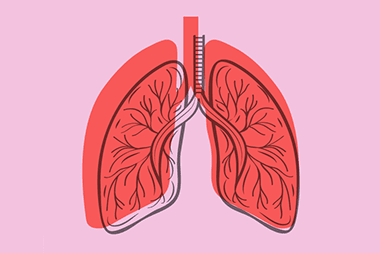Every year, tuberculosis (TB) kills 1.6 million people – more than malaria and HIV combined – making it the world’s deadliest infectious disease. UCSF doctors and scientists have been battling this deadly yet curable disease for over 140 years. Today, UCSF addresses work in California and around the world.
Projects
The Alliance for Resilient Communities and Health (ARCH) is a global public health initiative dedicated to fostering societal resilience through research innovation, collaborative learning, global partnerships, and community empowerment.
Country of activity
United States
Partners
Positive and Adverse Childhood Experiences (PACEs) Connection, Resilient Collective
Funders
Centers for Disease Control and Prevention, National Science Foundation, UCSF Resource Allocation Program
IGHS Center
Center for Pandemic Preparedness and Response
Contact
Mohsen Malekinejad, MD, DrPH mmalekinejad@ucsf.edu
More information
Alliance for Resilient Communities and Health (ARCH)
The COVID-19 pandemic clearly illustrated the need for a versatile public health workforce. Cal-PPH is a paid training and job placement program for early-career public health professionals to gain experience working at local health jurisdiction host sites. Cal-PPH fellows and host site preceptors receive ongoing support from the program team of public health professionals of three partner agencies.
Country of activity
United States
Partners
California Department of Public Health, UC Los Angeles
Funder
California Department of Public Health
IGHS Center
Center for Pandemic Preparedness and Response
More information
California Pathways into Public Health Initiative
VTA+ is a collaboration that rapidly trains, scales and sustains a workforce to respond to the COVID-19 pandemic and other diseases. It equips a diverse group of state and local health jurisdiction staff with the knowledge, skills, resources and community to provide crucial public health services.
Country of activity
United States
Partners
California Department of Public Health, UC Los Angeles
Funder
California Department of Public Health
IGHS Center
Center for Pandemic Preparedness and Response
Contact
Jess Celentano, MPH jess.celentano@ucsf.edu
More information
Virtual Training Academy
The UCSF Informatics Hub provides wide-reaching informatics solutions for numerous PEPFAR countries through the HISTAC project. Our large East African-based technical staff are developing and implementing streamlined open-source EMR functional packages (in OpenMRS) that can used for patient care, program monitoring, and donor reporting for HIV, tuberculosis, COVID-19, and other diseases. They also provide Ministries of Health with technical advice on patient management systems (client registries) and national health data dictionaries.
Countries of activity
Kenya, Uganda, Rwanda, Nigeria, Zambia, Thailand, Botswana, Ethiopia, Cambodia
Partners
University of Nairobi, Makerere School of Public Health
Funder
Centers for Disease Control and Prevention
IGHS Center
Center for Global Strategic Information and Public Health Practice
Contact
Michelle Moghadassi, MPH michelle.moghadassi@ucsf.edu
The Open Oximetry Project improves access to safe pulse oximeters worldwide by sharing data and creating new standards and technologies for oximeter validation that better account for skin color. The project brings together a diverse community of oximetry experts, including engineers, academic researchers, clinicians, community members, manufacturers, and regulatory bodies, to partner to tackle these issues.
Country of activity
United States
Partners
The UCSF Hypoxia Lab
Funders
The Gordon and Betty Moore Foundation, Robert Wood Johnson Foundation, PATH with funding from Unitaid, Patrick J. McGovern Foundation, U.S. Food and Drug Administration, USAID-STAR Sustaining Technical and Analytic Resources (STAR) Project, The UCSF Hypoxia Lab
IGHS Center
Center for Health Equity in Surgery and Anesthesia
Contact
Michael Lipnick, MD michael.lipnick@ucsf.edu
More information
Open Oximetry
Since 2019, STRIPE HIV has played a vital role in maximizing the impact of HRSA’s investment and PEPFAR’s commitment to building health workforce capacity across Africa to achieve HIV epidemic control. Focused on strengthening interprofessional HIV education and improving the quality of care, STRIPE HIV supports academic and clinical educators to facilitate case-based workshops for interprofessional learners so the next generation of health workers is capacitated to deliver high-quality, collaborative, and evidence-informed HIV care.
Countries of activity
Nigeria, Ghana, Cameroon, Democratic Republic of the Congo, Zambia, Botswana, South Africa, Lesotho, Mozambique, Zimbabwe, Malawi, Tanzania, Kenya, Uganda, Ethiopia
Partners
AFREHealth, UCSF, select universities and institutions across sub-Saharan Africa
Funders
Health Resources & Services Administration, United States President’s Emergency Plan for AIDS Relief (PEPFAR)
Contact
Maeve Forster, MPH maeve.forster@ucsf.edu
More information
STRIPE HIV
SMART4TB aims to transform tuberculosis (TB) prevention and care. It designs and implements research studies with local partners to identify effective person-centered methods for finding, treating and preventing TB; strengthen local capacity to conduct high-quality research; and engage communities to build demand for new interventions, drive policy change, and improve implementation of new and existing interventions to reach the End TB Targets.
Eric Goosby, MD, leads SMART4TB’s Policy Translation and Community Engagement Technical Area. Dr. Goosby contributes to building a strong framework for policy translation and community engagement and helps achieve ambitious high-level global policy commitments to advance research to end TB.
Countries of activity
Afghanistan, Bangladesh, Burma, Cambodia, Democratic Republic of Congo, Ethiopia, India, Indonesia, Kenya, Kyrgyzstan, Malawi, Mozambique, Nigeria, Pakistan, Philippines, South Africa, Tajikistan, Tanzania, Ukraine, Uganda, Uzbekistan, Vietnam, Zambia, and Zimbabwe
Partners
Johns Hopkins University, Elizabeth Glaser Pediatric AIDS Foundation, KNCV Tuberculosis Foundation, Treatment Action Group
Funders
Johns Hopkins University, Elizabeth Glaser Pediatric AIDS Foundation, KNCV Tuberculosis Foundation, Treatment Action Group
IGHS Center
Center for Global Health Delivery and Diplomacy
Contact
Jess Celentano, MPH Jessica.celentano@ucsf.edu
More information
SMART4TB

